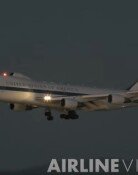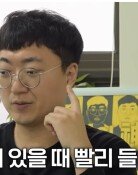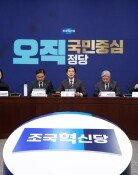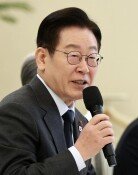Calls for U.S. Mediation in Serious-than-Expected Dokdo Conflict
Calls for U.S. Mediation in Serious-than-Expected Dokdo Conflict
Posted April. 13, 2005 23:20,
A right-leaning Japan and its signs of militarism are matters of concern, said a Korean government official.
Japan is a democracy country. It cannot lean in such a direction. Such a view is similar to Chinas paranoia. Korea may be viewing Japan in a too Chinese perspective, said a U.S. Department of Defense official.
This dialogue took place during U.S. Secretary of State Condoleezza Rices visit to Korea in late March, when President Roh Moo-hyun is said to have given Secretary Rice a brief lecture on the history of Korea-Japan relations.
However, Korea-Japan relations surrounding the Dokdo issue and the Japanese history textbook are taking on features of a diplomatic war, and there are even discussions over the possibility of the destruction of Korea-US-Japan cooperation. Against this backdrop, Washington is starting to change its stance on the issue.
Washington Baffled-
A US diplomat said in a private meeting that even as late as Secretary Rices visit to Asia last month, we didnt relate the Dokdo conflict to Japans bid to gain a permanent seat on the UN Security Council.
It appears that an unofficial meeting between Korean affairs desk officers at the US State Department with a Washington think-tank and Korea experts on Thursday took place because the US is acknowledging its lack of understanding in the Korea-Japan conflict. It is said that this meeting came to a conclusion that the official position of the U.S. administration is supporting neither Korea nor Japan [on the territorial dispute].
When a reporter asked whether the U.S. should try to clear up the misunderstanding that it supports Japan, one of the experts that participated in the meeting answered, The State Department should make such efforts.
U.S. Mediation Rises to Surface-
The Director of the Heritage Foundation`s Asian Studies Center, Larry Wortzel, said, The U.S. should and will recommend to the leaders of both nations that they should resort to a diplomatic solution.
Director Wortzel also asserted that, The U.S. should consider joining its separate alliance with Korea and Japan, expanding it into a Korea-US-Japan alliance. This means that the problem should be solved through revising the alliance itself.
Robert J. Einhorn, a senior adviser in the CSIS International Security Program and a former assistant secretary of state, agreed that in order to restore Korea-Japan relations, the U.S. needs to be prepared to invest a considerable amount of political resources. Alan Romberg, a senior associate at the Henry L. Stimson Center, called for U.S. mediation, saying, [The U.S.] should let the two countries know that emotional and nationalistic responses do not add to any sort of national interest.
However, both liberal and conservative Korea experts in Washington rejected the idea of relating the Dokdo issue to Japans entry into the UN Security Council.
A senior official at the U.S. State Department recently said in a private meeting that, Ive visited the Yaskuni Shrine and was disgusted at how war criminals were honored. However, helping Japan enter the UN Security Council is an issue directly related to our national interests.
His point was that the Bush administration cannot help but support Japans entry into the Security Council, given that the U.S. was derided as a unilateralist in engaging in the Iraq War and was constantly held in check by another Security Council member, France.
Jung-Ahn Kim credo@donga.com







